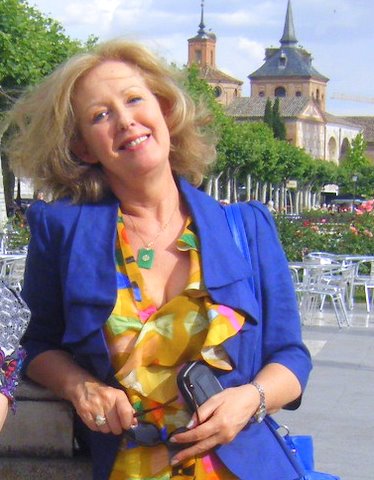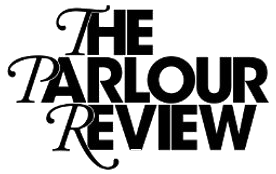Mary O’Donnell

Monaghan town’s St. Louis Convent was a good convent girls’ school run by managerial nuns who believed in Girl Power before the term was invented. When I think of boarding school I think of being permanently freezing cold, with occasional chilblains and never enough hot water. But the school was in a beautiful setting, beside a crannog lake, where the sounds of curlews and other wild birds would pierce the winter morning silences. There was also music, lots of it, and a very good library. It was there I read The Metamorphoses of Ovid, The ABC of Communism, Schiller and Zola, and odd, torrid and obviously uncensored accounts of nursing careers in England that had somehow slipped through unnoted to the high shelves. This reading built on the pretty good library in the house where I grew up outside Monaghan town, where my mother had accumulated auction lots over the years, a mixture of the good, the bad, and some great first editions. I lived with parents for whom books were important, and so when I began to write it was always greeted with enthusiasm. That freedom to just go ahead and do what I want in my work has never deserted me, probably because I was always validated artistically when very young and just groping my way into writing. Paradoxically, I felt often quite powerless for my first three years in boarding school, but by sixteen had got a grip, enough to look over the parapet. I spent enough time in Germany to entice me towards things I could not then articulate. I adored its cultural liberality, its absence of provincialism (although of course most places have their own brand of provincialism). Perhaps it’s better to say that despite German provincialism they still had personal human rights the oppressed Irish did not.
It was there I read The Metamorphoses of Ovid, The ABC of Communism, Schiller and Zola, and odd, torrid and obviously uncensored accounts of nursing careers in England that had somehow slipped through unnoted to the high shelves.
Later, at Maynooth University I obtained a degree in German and Philosophy, with further postgraduate German studies to MA level, and as a teacher, a first class honours Higher Diploma in Education, achieving second place in my year group. Yup. I rather liked the classroom in those days and the kids were entertaining, profound, mouthy, sad, happy, rude, and carried the usual emotional kit-bag that would eventually bog some of them down in adult life. I did my best to follow a Larkinesque route. All first years began poetry with a reading of ‘This Be the Verse’. It made them laugh. It surprised them that the old Anglo-Saxon word was included in a poem.
But before I became a teacher I was a secretary, tea-maker, telex operator at a glue factory, worked for Concern, worked for Jacobs Biscuits, Irish Tea, accountants and architects, butter-makers and cigarette-machine distributors. My worst work experience was as a Library Assistant at my local university. There, as a young woman with her first degree, newly married, happy and in love, I was – by today’s terms of reference – bullied by an older woman and got absolutely no support for my complaint. It was enlightening if depressing to realize how some older people resent youth and happiness, youth and possibility.
After the rainbow of office work, and after four years’ teaching, I began to write and to publish.
I often think about my life today – how busy it is with literary things, how my attention is bent to create and re-make, constantly. And yet, and yet, my warmest feelings still remain for the old friendships where literature and art were rarely discussed, and everything still lay ahead. Yet, as a woman of ideas – an intellectual I suppose – I will always be drawn to where ideas are tossed around, I will always be restless and seeking. It’s just my nature, which tends at times to be Protean.
Publications (FICTION)
First novel ‘The Light-Makers’ (Poolbeg Press). Named the Sunday Tribune’s Best New Irish Novel of 1992. It became a best-seller because a prominent Irish media man described it as ‘erotic’ and as ‘a thumping good read’. It was neither, but I was very happy nonetheless.
‘Virgin and the Boy’ (1996, Poobeg). My misfit book. Neglected by all. Now this was ‘a thumping good read’. Most reviewers couldn’t get past the sex.
The critically acclaimed novel ‘The Elysium Testament’ appeared from Trident Press, 1999.
A collection of short stories, ‘Strong Pagans’, appeared in 1991.
The short story collection ‘Storm over Belfast’ appeared with New Island in 2008 and contains several prize-winning stories. It was on the long list for the Frank O’Connor International Short Story Award in 2008, and was broadcast on national radio on ‘The Book at One.’
Publications (POETRY)
‘Reading the Sunflowers in September’ (Salmon Poetry). Nominated for an Irish Times Literature Award in 1991.
‘Spiderwoman’s Third Avenue Rhapsody’ (Salmon). Nominated for an Irish Times Literature Award in 1994.
‘Unlegendary Heroes’ (Salmon, 1998)
‘September Elegies’ (Lapwing Press, Belfast, 2003)
‘The Place of Miracles’, New & Selected Poems (New Island Books, Dublin, 2006)
A sixth collection, ‘The Ark Builders’, is due from Arc Publications UK next autumn.
Poems and essays, including translations from German poetry, have been widely published in literary magazines and journals, among them The Yellow Nib, The Poetry Review, Poetry Ireland Review, Poetry International (Ca), Agenda (UK), Oxford Poetry, The Seneca Review.
SELECTED ESSAYS, INTERVIEWS and COMMENTARY ON MARY O’DONNELL’S WORK:
Otra Irlanda: La estética postnacionalista de poetas y artistas irlandesas contemporáneas (Universidad de Oviedo, 2000);
Luz Mar González Arias: Cuerpo, mito y teoría feminista: re/visions de EVA en autoras irlandesas contemporáneas (Universidad de Oviedo, 1997);
Post/Imperial Encounters, Anglo-Hispanic Cultural Relations, ed. Juan E. Tazón Salces and Isabel Carrera Suárez (Editions Rodopi, Amsterdam, 2005);
Uncanny Families: Neo-Gothic Motifs and the Theme of Social Change in Contemporary Irish Women’s Fiction: Dr. Anne Fogarty, Irish University Review, Spring/Summer 2000.
En Santiago de Compostela con Mary O’Donnell, Manuela Palacios, Boletín Galego de Literatura, No. 38, 2007
SELECTED ESSAYS by MARY O’DONNELL:
Micheal O’Siadhail, European Poet (Musics of Belonging, Carysford Press, 2007)
‘The Journey from Imagination into Print: an overview of Irish Women’s Writing, 1980-2006’. Lecture for the Facultade de Filoloxia, A literatura en feminino/masculino, University of Santiago de Compostela, Summer course, July 2006.
The above paper is also published in 2009 in the anthology ‘Writing Bonds’ (Peter Lang).
Irish University Review, Special Issue – Eavan Boland: In Her Own Image: An Assertion that Myths are made by Men, by the Poet in Transition; Irish University Review, 1994; also excerpted in the Eavan Boland Sourcebook, editor Jody Allen Randolph, 2006.
‘Rough Hands and a Sick Culture’: The Irish Writer and Cultural Tourism; Irish University Review, Autum/Winter 1995
– ‘O Magnificent Why! Spatial Nosing: Introduction to Eithne Strong’s Collected Poetry, Salmon, 1991.
– ‘Better pass boldly into that other world … in the full glory of some passion’ The
writer, imagination, and Joyce.’ Lecture to the James Joyce Summer School, 1994.
TRANSLATION:
She has participated in several translation projects:
in 1994 at the Maison de la Poesie, she took part in a workshop in which six English-language and six French-language poets exchanged work, translated it and met over a number of days to discuss the outcome and different versions that emerged.
She has translated from Dutch, French, Portuguese and some German.
Most recent project is a work-in-progress, an anthology of Galician poetry in translation, which she is co-editing with Prof. Manuela Palacios of the Univ. of Santiago de Compostela. Ten Irish poets, including Nuala Ni Dhomhnaill, Paddy Bushe and Maurice Harmon, are involved in the translation of five poems from each poet, four of which will be translated to English, the fifth into Irish. The book will be published by Salmon Poetry in 2010.
in 2007 and 2008 she researched, scripted, presented and broadcast the summer radio series ‘Crossing the Lines’ for RTE, the focus of which was European poetry in translation and which included several of the newly acceded states to the EU.
Mary O’Donnell on The Parlour Review
EXTERNAL LINKS
COMMENT FROM OLD WEBSITE
Response to Mary O’Donnell
Mary O’Donnell
June 4, 2011 at 5:05 pm
Hello Gail Collard! I just spotted your comment now (June 2011), very late I realise. Thanks for your remarks which I appreciated.
All the best,
Mary

Leave a Reply